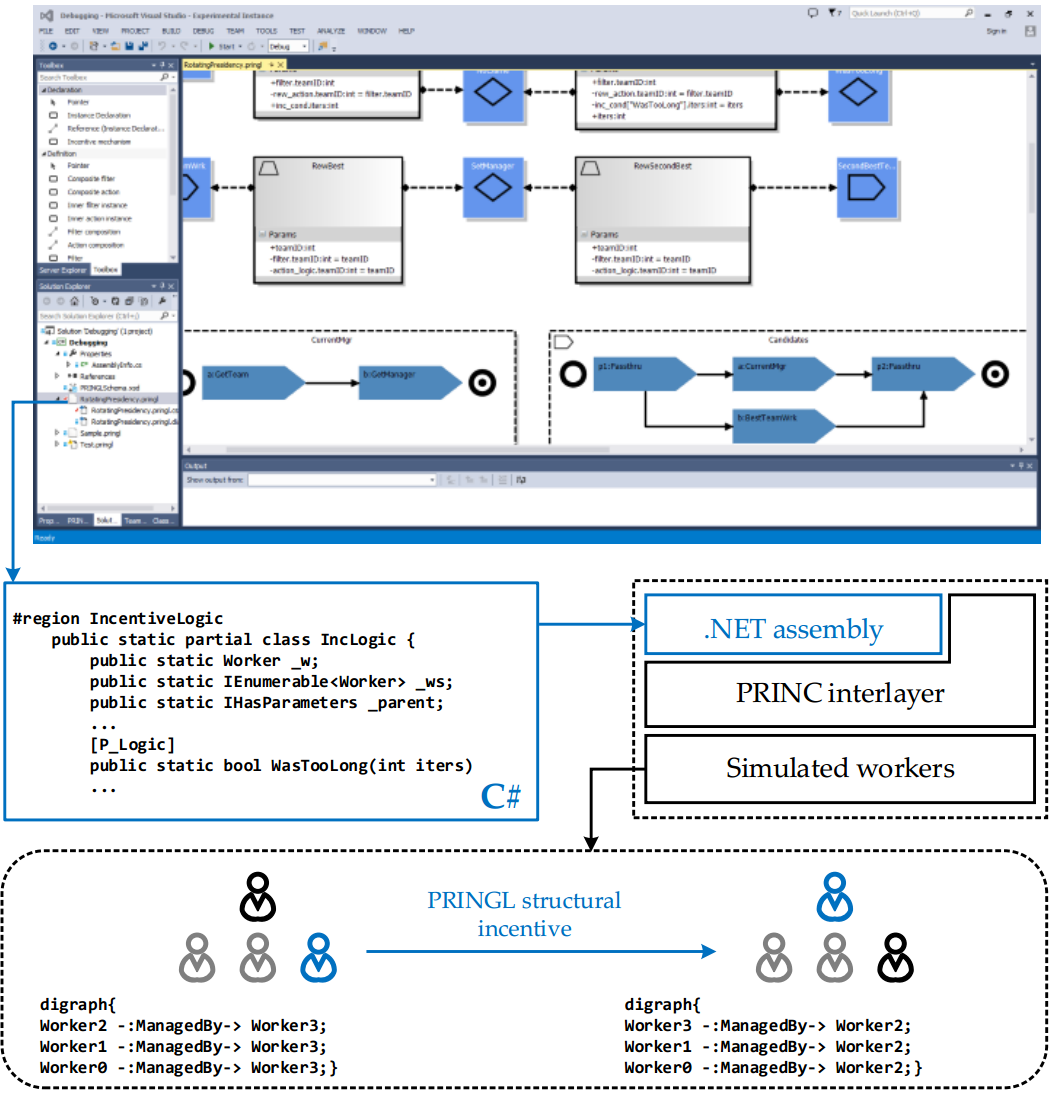PRINGL is a domain-specific, visuo-textual language used for programming incentives for socio-technical systems (e.g., social-computing, crowdsourcing, SCUs, HDA-CAS). It fosters a modular approach in composing incentive elements that promotes code reusability and uniformity of incentives, helping cut down development and adjustment time, and creating a basis for development of standardized but tweakable incentives. This in turn leads to more transparency for workers and creates a basis for an incentive uniformity across companies; a necessary precondition for worker reputation transfer.

As PRINGL's design is currently under submission, this page currently serves as a placeholder hosting the supplement materials and links to the source code.
Supplement materials
Please note that PRINGL is being actively developed. Some of the implemented components have been developed as demonstration prototypes at this point and therefore offer only a subset of the presented functionality. Specifically, at the moment of writing not all metamodel constraints have been fully implemented. Also, the implemented code generator functionality currently lacks implementation of all operators and certain advanced functionalities.
Implementation
PRINGL is implemented in Microsoft Modeling SDK for Visual Studio 2013 (link).- Metamodel:
- PRINGL Visual Studio IDE
- Source code of the Visual Studio project launching a new Experimental instance of Visual Studio for PRINGL projects is is available here.
- "Rotating Presidency" example
- "Rotating Presidency" example (full description) - the document showcases the use of the introduced PRINGL elements in encoding a real incentive strategy.
- Source code is available here.
- Screenshot (PDF, XPS)
